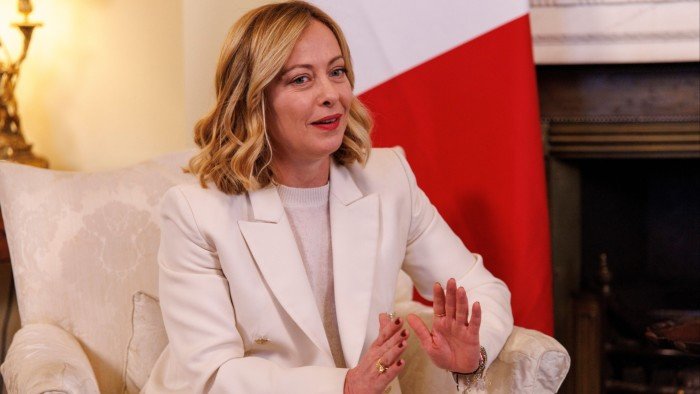
Unlock the Editor’s Digest for free
Roula Khalaf, Editor of the FT, selects her favourite stories in this weekly newsletter.
France, Ireland and Europe’s powerful farming unions are pushing Brussels to drop many food and drink products from its proposed retaliation against US tariffs.
The European Commission has received floods of objections from business and member states to its list of measures, underlining how the 27 member block might struggle to respond collectively to US pressure.
Jack Chambers, Ireland’s public expenditure minister, warned against “retaliatory and tit-for-tat measures that could worsen a trade dispute” on Friday while Italian prime minister Giorgia Meloni told the FT the EU should negotiate over its high duties on some items.
“There are big differences on the single goods,” she said. “That’s what we have to work on to find a good, common solution.”
Her agriculture minister Francesco Lollobrigida also called for talks, saying: “We fear any further burden that will create more difficult conditions [for wine exports]. But we aren’t terrified.”
France, Italy and Ireland were spooked after the commission announced tariffs of 50 per cent on bourbon whiskey in response to US levies of 25 per cent on steel and aluminium. Donald Trump threatened to hit back with 200 per cent tariffs on European drinks including wine, champagne and whiskey.
In response Paris requested Brussels delay the measures from April 1 until mid-April to create space for talks. However, EU officials say that attempts to negotiate have made little progress.
Rather than heed overtures, this week Trump went further with 25 per cent tariffs on cars. He also confirmed that April 2 would be “Liberation Day” with sweeping levies on all goods, on top of existing tariffs. The EU’s top negotiator told colleagues he expects to have to pay at least 20 per cent.
The package of tariffs on €26bn of US imports will be put to member states for approval to take effect on April 12.
With its proposals the commission published a 99 page list of possible targets — from soyabeans to beauty products and underwear — with companies and governments able to object until March 26 before the final list is produced.
Peter Burke, Irish trade minister, told parliament this week that the “government has made our concerns clearly known to the EU including in relation to the dairy and spirit drinks sectors”.
He said the EU was “open to fine-tuning its rebalancing measures so that they strike the right balance of products, taking into account the interests of EU producers, exporters, and consumers”.
The spirits industry has also called for bourbon to be exempted, while the EU timber industry wants wood taken off the list for fear of retaliation, one industry figure said. It exports about three times more than it imports.
Copa-Cogeca, which represents farmers, is pushing to remove soyabeans, which are vital to feed animals. “Agrifood sector should be kept out of the scope of the retaliation or any disputes that don’t concern it,” a spokesperson said.
“Many EU countries have a deficiency in production of raw materials for animal feed and therefore any imposition of additional tariffs on key products such as: maize, soyabeans and distillers dried grains with solubles would seriously hinder the livestock production and create market disruption and price increases for consumers.”
Diplomats say the commission has considerable sway on such trade proposals as it would take a weighted majority of member states to block its plan in a vote.
“It’s not surprising that governments are doing this — they are standing up for their interests,” said one European diplomat.
“But I am confident that there is going to be a strong package from the commission that will be approved. If we block this then we are screwed — and member states know that.”
https://www.ft.com/__origami/service/image/v2/images/raw/https%3A%2F%2Fd1e00ek4ebabms.cloudfront.net%2Fproduction%2F9c1b3b93-fb56-4633-a2a3-f85fc47a4310.jpg?source=next-article&fit=scale-down&quality=highest&width=700&dpr=1
2025-03-29 01:00:55




